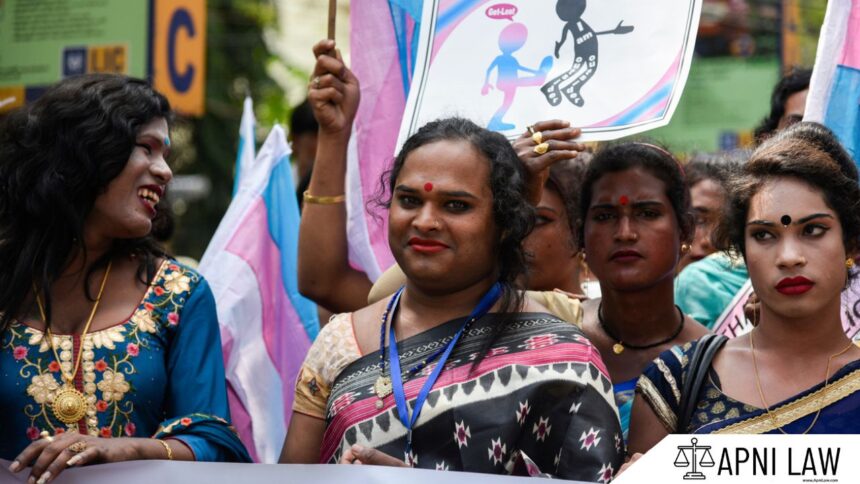Introduction
The National Council for Transgender Persons is a vital statutory body established under the Transgender Persons (Protection of Rights) Act, 2019. It plays a leading role in promoting equality, inclusion, and justice for transgender individuals in India. By advising the Central Government and coordinating with various ministries and organisations, the Council ensures the effective implementation of transgender welfare policies. Its functions directly support the goal of creating a discrimination-free and inclusive society.
What Is The Role of National Council under Section 16 of Transgender Persons Act?
The Central Government must establish a National Council for Transgender Persons through a notification. This council holds the authority to perform the functions and exercise the powers given under the Transgender Persons (Protection of Rights) Act.
The Council includes top officials and experts. The Union Minister of Social Justice and Empowerment acts as the Chairperson. The Minister of State for the same Ministry serves as the Vice-Chairperson. The Secretary of the Ministry is also a member. Representatives from various ministries, like Health, Home Affairs, Housing, Minority Affairs, Education, Rural Development, Labour, Legal Affairs, Pensions, and NITI Aayog, are also part of the Council. All these members must hold the rank of Joint Secretary or above.
In addition, the National Human Rights Commission and National Commission for Women each nominate one representative. The Council includes one member from each of the five regions, North, South, East, West, and North-East, representing State Governments and Union Territories. The Central Government also nominates five representatives from the transgender community, again covering all five regions. Furthermore, five experts from NGOs or organizations working for transgender welfare are nominated. A Joint Secretary from the Ministry acts as the Member Secretary. Members, except for ex officio ones, serve a three-year term.
The Council performs several important roles. It advises the Central Government on transgender-related policies, schemes, laws, and projects. They monitor the impact of these initiatives to ensure equal participation of transgender persons. It coordinates activities between government departments and NGOs. The Council also addresses grievances raised by transgender individuals. Lastly, it carries out any other responsibilities assigned by the Central Government.
This council plays a role in promoting inclusion, equality, and dignity for transgender persons across India.
What are the Functions of the National Council under Section 17 of Transgender Persons Act?
The National Council for Transgender Persons plays a crucial role in shaping and safeguarding the rights of transgender individuals in India. One of its main functions is to advise the Central Government on matters related to transgender welfare. This includes formulating policies, launching programmes, drafting legislation, and planning projects aimed at improving the lives of transgender persons.
The Council also monitors and evaluates the impact of these policies and initiatives. It ensures that they promote equality and enable full participation of transgender individuals in all aspects of life. By tracking outcomes, the Council helps the government make data-driven improvements.
In addition, the Council reviews and coordinates the activities of various government departments and non-governmental organisations involved in transgender welfare. This coordination helps avoid duplication, ensures consistency, and promotes a unified approach to addressing transgender issues.
Another key function of the Council is to redress the grievances of transgender persons. It serves as a platform where individuals can raise their concerns and seek appropriate solutions. This enhances accountability and builds trust in the system.
The Council may also perform additional responsibilities as prescribed by the Central Government. Overall, it acts as a central body to guide, monitor, and implement measures that protect the rights and dignity of transgender persons in India.
Case Law on the National Council for Transgender Persons
One significant case that relates to the role and responsibilities of the National Council for Transgender Persons is the Arun Kumar v. Inspector General of Registration, 2019. This case, though not directly about the Council itself, reinforced the importance of government responsibility in recognizing and safeguarding transgender rights, principles that are central to the Council’s functions.
Case Background
In this case, a cisgender man married a transgender woman. The authorities refused to register the marriage under the Hindu Marriage Act, 1955. The petitioner challenged this action as discriminatory and a violation of constitutional rights.
Court’s Ruling
The Madras High Court ruled that the term “bride” under the Hindu Marriage Act includes transgender women who identify as female. The Court cited NALSA v. Union of India (2014) to reaffirm that transgender persons have the right to self-identify their gender.
Connection to the National Council
The judgment emphasized the State’s duty to uphold transgender rights and promote social inclusion. These are the same responsibilities the National Council for Transgender Persons is expected to fulfil. The Court also reminded the government of its duty to implement welfare policies and ensure dignity for transgender individuals, core functions of the Council.
Conclusion
The National Council for Transgender Persons is essential for advancing the rights and dignity of the transgender community in India. Through its advisory role, policy monitoring, grievance redressal, and coordination efforts, the Council acts as a bridge between the government and transgender persons. It ensures that transgender voices are heard and their needs are addressed at the national level. As a result, the Council helps drive lasting change toward equality and social justice.








